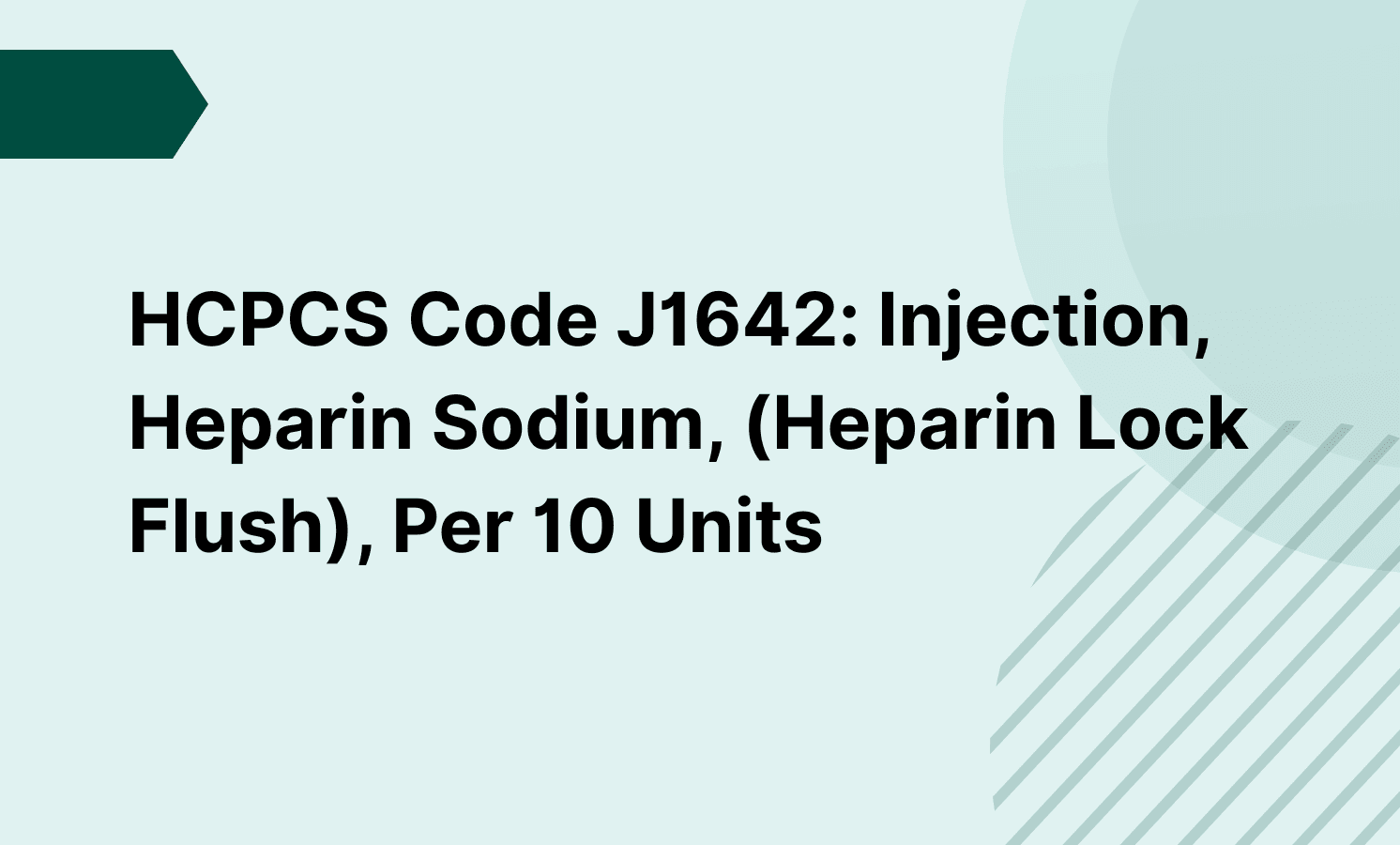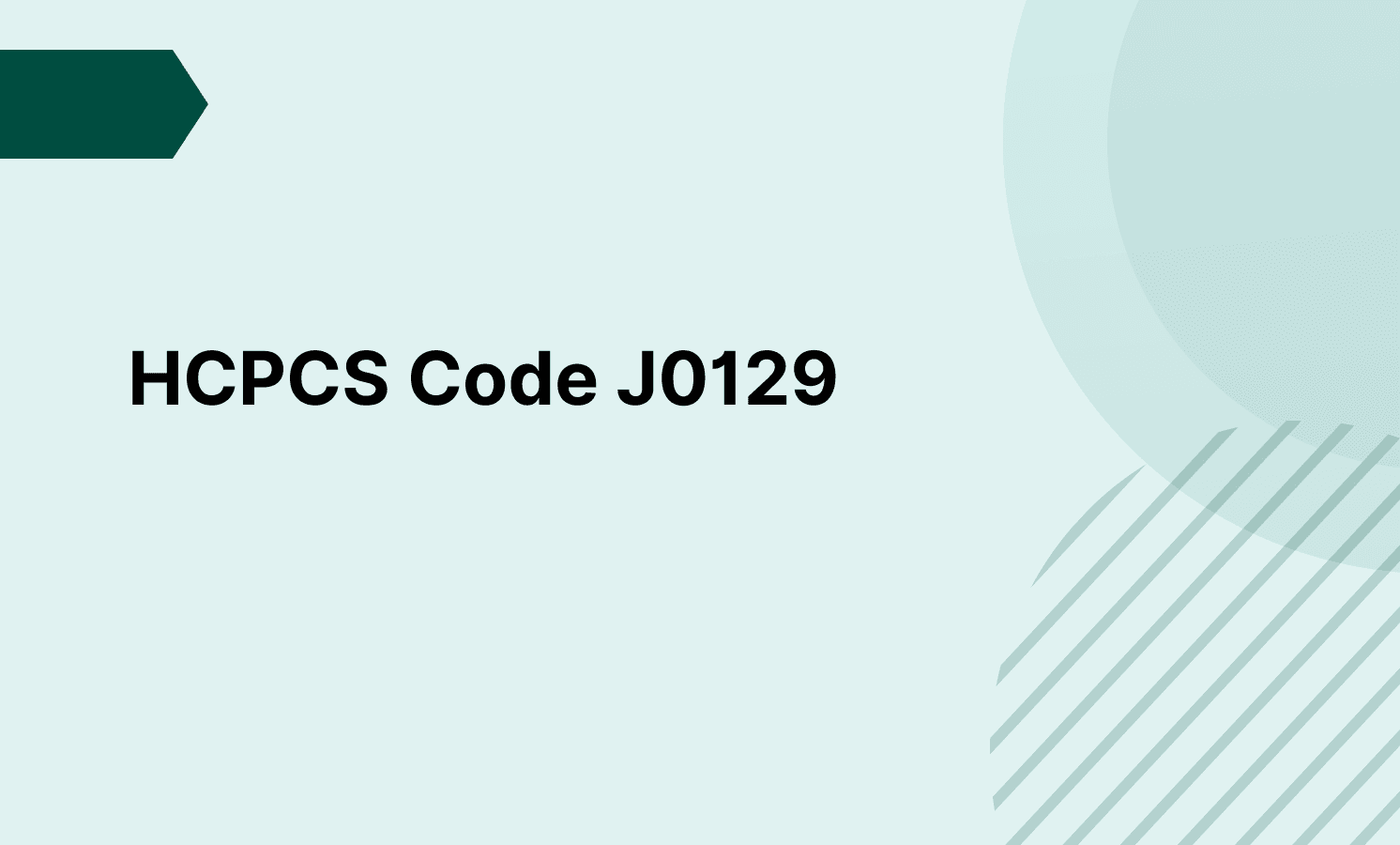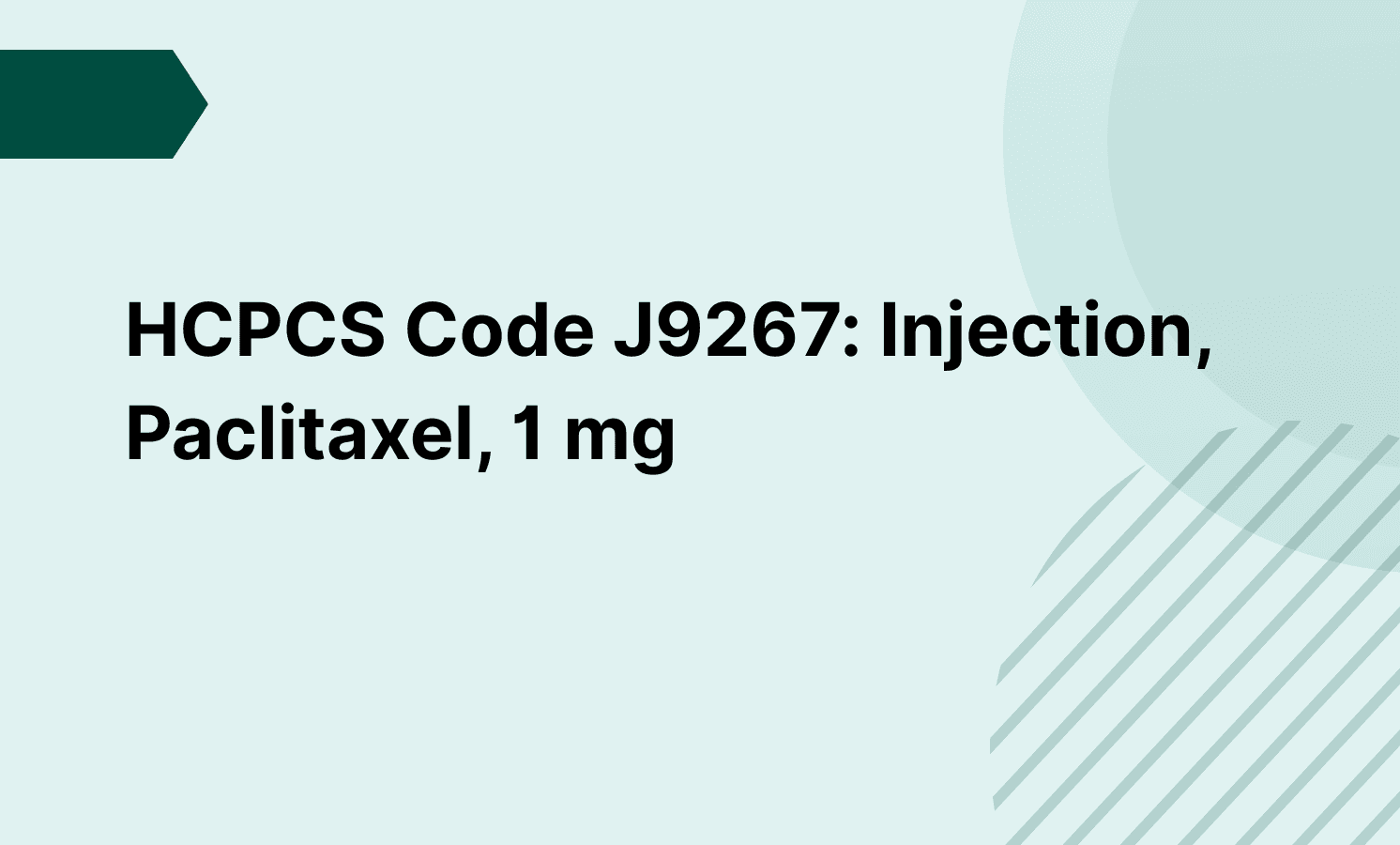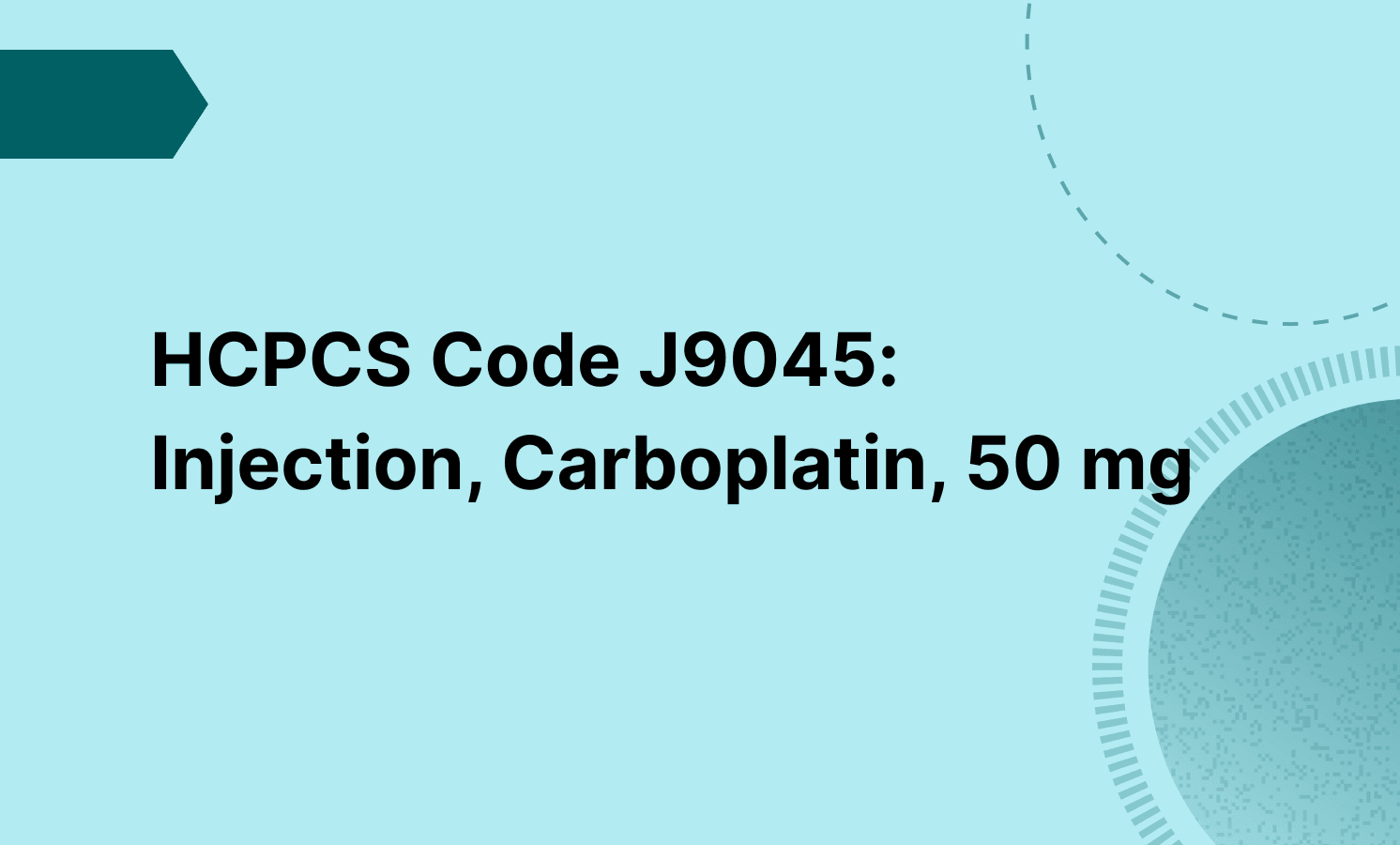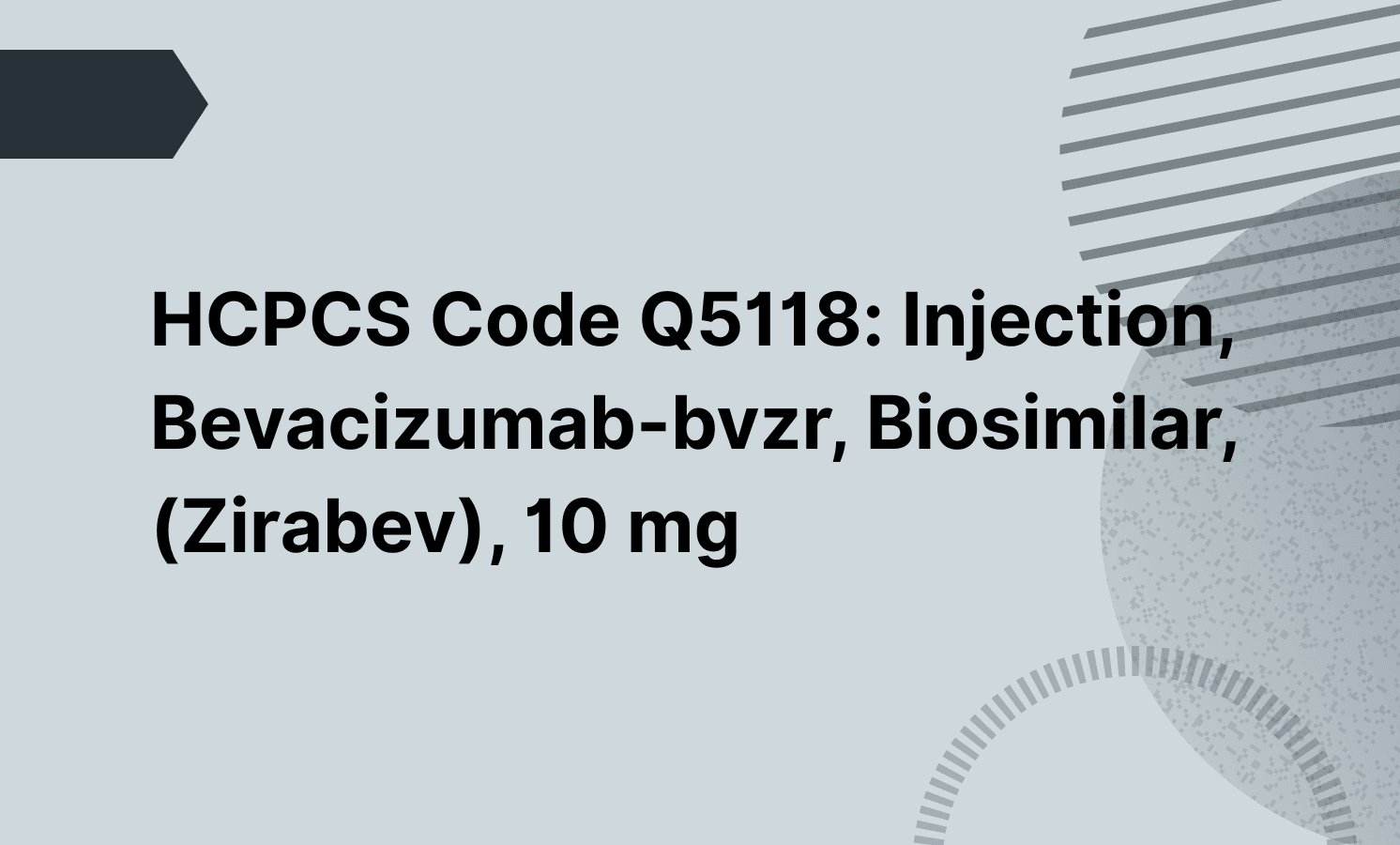No, CPT 93880 is for a complete bilateral study of the extracranial arteries. For unilateral or limited studies, use CPT 93882.
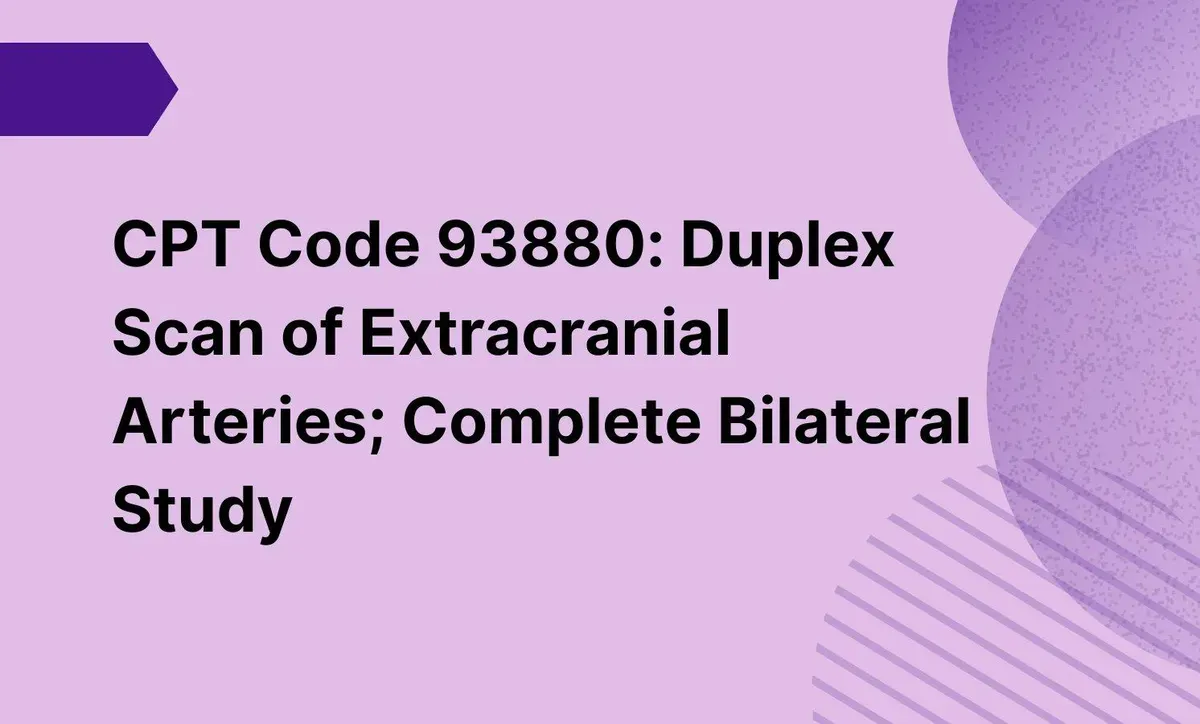
CPT Code 93880: Duplex Scan of Extracranial Arteries; Complete Bilateral Study
Understand CPT 93880 coding for carotid duplex scans to ensure proper billing and accurate reimbursement.
Use Code
Frequently asked questions
Yes. CPT 93880 includes B-mode imaging and Doppler ultrasound for assessing blood flow in the carotid arteries and other extracranial vessels.
Coverage for CPT 93880 is limited. It’s typically reimbursed only when there is medical necessity, such as symptoms of stroke, carotid bruit, high blood pressure, or a relevant family history of carotid artery disease. Routine screening is generally not covered by Medicare or most insurance payers.
EHR and practice management software
Get started for free
*No credit card required
Free
$0/usd
Unlimited clients
Telehealth
1GB of storage
Client portal text
Automated billing and online payments

